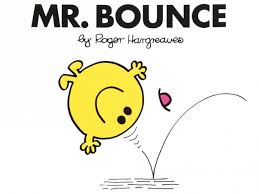记忆方法
[巧记]谐音:“绷丝”(床)→在绷丝床上跳来跳去
中文词源
bounce 弹
拟声词。
英语词源
- bounce
-
bounce: [13] Bounce is something of a mystery word. When it first appears in Middle English it means ‘hit’, and it does not acquire its modern sense ‘rebound’ until the late 16th century. There are similar words in other Germanic languages, such as Dutch bons ‘thump’, but there is no reason to suppose that any of them is actually the source of the English word. Many etymologists incline to the view that bounce is an independent onomatopoeic formation.
- bounce (v.)
- early 13c., bounsen "to thump, hit," perhaps from Dutch bonzen "to beat, thump," or Low German bunsen, or imitative; sense probably influenced by bound (v.). Sense of "to bounce like a ball" is from 1510s; the rubber check sense is from 1927. Related: Bounced; bouncing.
- bounce (n.)
- 1520s, "a heavy blow," also "a leap, a rebound" from bounce (v.). In reference to politicians and public opinion polls, by 1996, American English.
权威例句
- 1. It was good to bounce ideas off another mind.
- 与别人谈谈自己的想法是有益的。
- 2. She lets us do anything, even bounce on our beds.
- 她放任我们随心所欲,甚至连我们在床上蹦跳她也不管。
- 3. They watched the dodgem cars bang and bounce.
- 他们看着那些碰碰车互相碰撞并弹开。
- 4. Let's bounce a few ideas around.
- 咱们交流一下看法吧。
- 5. She's got a lot of bounce.
- 她浑身都是劲.

